Iran’s economic diplomacy shifts to high gear
The Iranian government has set one of its strategic priorities to activate the capacities of diplomacy and play a role in regional and global developments, placing economic diplomacy at the top of its agenda.
President Ebrahim Raeisi began his term in August 2021 when Iran’s oil exports had dropped to 300,000-400,000 barrels per day and the country had no access to its assets in foreign banks, mainly from exports of oil and gas.
This left the new administration saddled with a gaping budget deficit, followed by a dramatic rise in inflation which called for urgent action to prevent the situation from spiraling.
With sanctions bearing down, the government chose not to wait for the revival of a 2015 nuclear agreement, on which its predecessor had spent all its political capital without success. It opted instead to push through a neighbor- and Asia-oriented policy, with economic diplomacy at the core.
Central Asia and the Caucasus became the primary focus, where an outstanding debt to Turkmenistan for export of gas had bedeviled relations.
About two months after taking office, President Raeisi traveled to Ashgabat where he oversaw the signing of a tripartite gas swap agreement to transfer up to 2 billion cubic meters of gas a year from Turkmenistan to Azerbaijan via Iran.
The visit created a basis for cooperation in trade and energy. Earlier this month, Minister of Petroleum Javad Owji said Iran plans to create a gas hub in Asaluyeh with the participation of Russia, Turkmenistan and Qatar. The four countries dominate the largest proven gas reserves of the world.
In June 2022, Turkmenistan’s President Serdar Berdimuhamedow visited Tehran where the two sides inked several cooperation documents in the fields of economy, trade, transportation, investment, new technologies, environment, sports, energy, judiciary, education, research, and tourism.
President Raeisi’s first visit abroad came in September 2021 to Tajikistan where the two sides signed eight cooperation documents.
On Sunday, Raeisi hosted President Shavkat Mirziyoyev of Uzbekistan, another Central Asian country of 35 million people, whose visit to Tehran was the first by an Uzbek leader in 20 years. The two presidents oversaw the signing of 10 documents for cooperation in a host of fields.
Among other measures of the government is the development of relations with China, marked by numerous exchanges of visits and conclusion of several strategic documents.
In January, a 25-year comprehensive cooperation agreement signed between Iran and China last year entered the implementation stage when Iranian Foreign Hossein Amir-Abdollahian visited Beijing.
Economic diplomacy with China has continued to increase the purchase of oil from Iran by China and bolster the Islamic Republic's hard currency earnings in the face of sanctions.
Nevertheless, an evolution in Iran’s foreign relations under the current administration has occurred with Russia.
President Raeis’s visit to Moscow in January 2022 resulted in a leap in trade between the two countries and ushered in bilateral cooperation in infrastructure and energy. Last month, the two countries signed a deal to finance and build an Iranian railway line as part of the international North–South Transport Corridor.
With both countries under Western sanctions, Iran and Russia are working on establishing new routes for financial exchanges, and barter deals, the use of national currencies in trade and launch of an alternative system to SWIFT international messaging platform are some of them.
Russian Deputy Prime Minister Alexei Overchuk on Monday was quoted as saying that Iran, Russia and several countries will finalize by the end of the year a free trade zone agreement that cover the vast Eurasian region spreading from the borders of Eastern Europe to Western China.
Talks between the Eurasian Economic Union - which comprises Armenia, Belarus, Kazakhstan, Kyrgyzstan and Russia - and Iran are in their final stages, he told state TASS news agency.
The government is also trying to expand Iran’s political and economic relations by joining international organizations, including the Shanghai Cooperation Organization which approved the country’s permanent membership in September 2021.
Last year, it applied to join the BRICS group of Brazil, Russia, India, China and South Africa that is being cast as a powerful emerging market alternative to the West. Officials say Iranian membership in BRICS would result in added values for both sides and diversify access to international economic, monetary and financial facilities.
Africa and Latin America are other key regions with which Iran seeks to expand economic relations.
President Raeisi is just back from a Latin America tour which took him to Venezuela, Nicaragua and Cuba and resulted in the conclusion of 35 memoranda of understanding and agreements.
To improve and strengthen relations with African countries, the government held Iran’s first economic cooperation summit with West Africa in Tehran in March, attended by 10 African countries.
As per the economic diplomacy, the current administration has organized 23 joint economic commissions in Tehran or the capitals of the target countries so far. It has also sent 149 economic delegations abroad and hosted 41 foreign economic delegations. More than 370 documents, especially in the economic field, have been negotiated or signed with different countries.
Other steps have included the establishment of joint chambers of commerce in other countries and the opening of border markets with Pakistan, Turkey, and Afghanistan, with another plan in the works to set up a joint border market with the Iraqi Kurdistan.
Officials say the policy has gained additional momentum following Leader of the Islamic Revolution Ayatollah Seyyed Ali Khamenei’s emphasis on strengthening interaction with neighbors.
In a meeting with senior officials of Iran’s foreign ministry and Iranian ambassadors in May, the Leader touched on the emerging world order, saying it is important to maintain relations with like-minded and Islamic countries.
"Today, the cooperation and alignment of some big and important countries of the world with the Islamic Republic of Iran in some processes and fundamental lines of international politics is an unprecedented phenomenon; we should appreciate this opportunity and strengthen relations with those countries,” he said.
VIDEO | Haj Qassem: The national hero
Gaza’s population falls by over 10% due to Israel’s genocide: Report
Tehran protests: How hostile external forces exploit economic discontent to foment chaos
Israel used multi-ton truck bombs in Gaza before ceasefire, investigation reveals
IRGC offers condolences on Abu Obeida’s martyrdom, says future belongs to Resistance
Iran appoints new central bank governor after currency fluctuations
General Ahmad Vahidi appointed deputy commander of IRGC
Iran MPs hail triple satellite launch as major milestone in space program


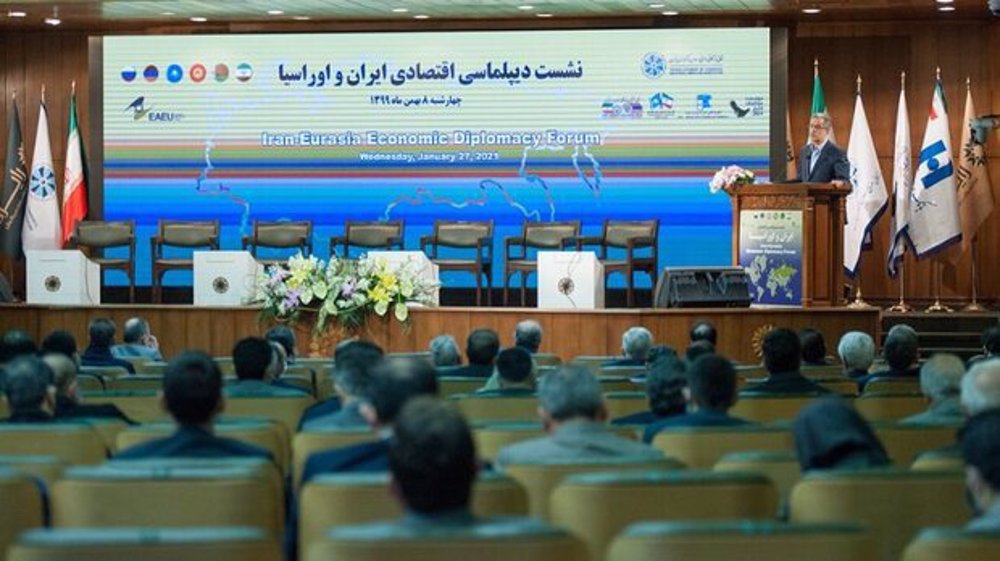
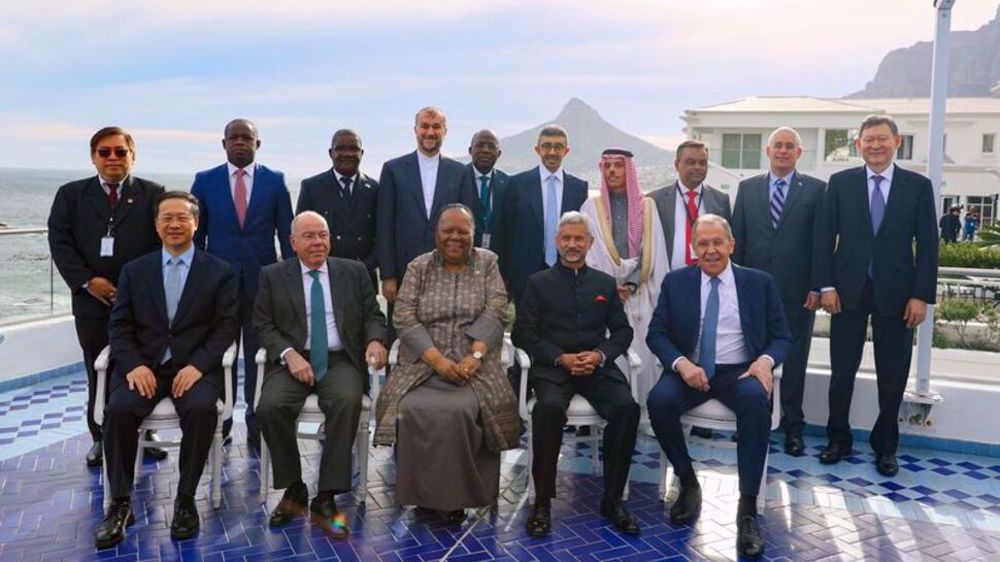
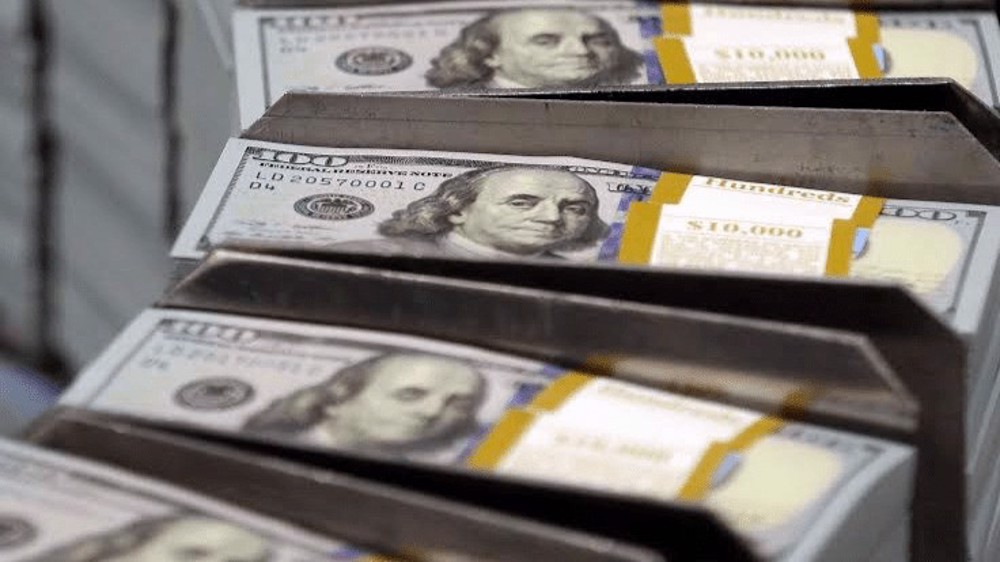
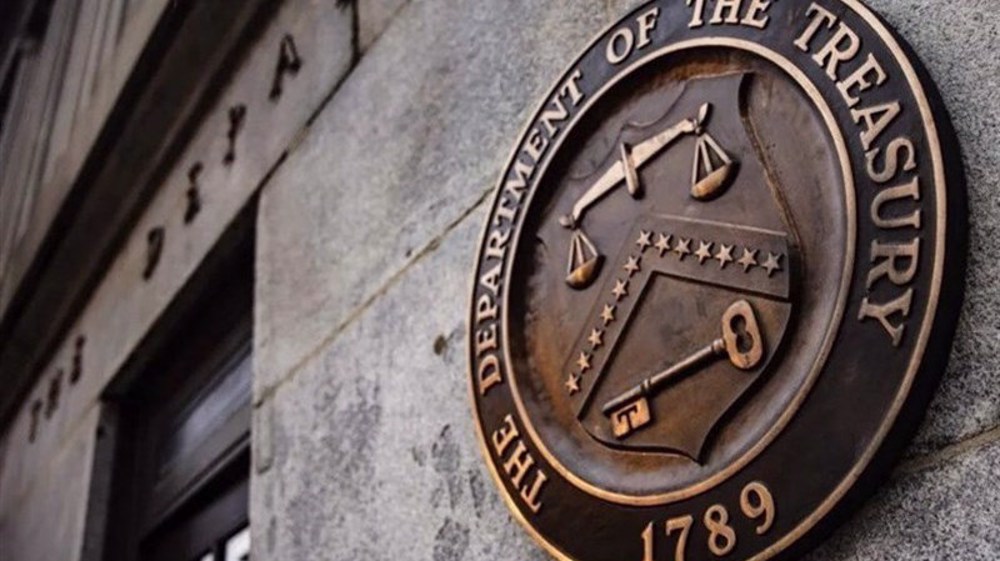
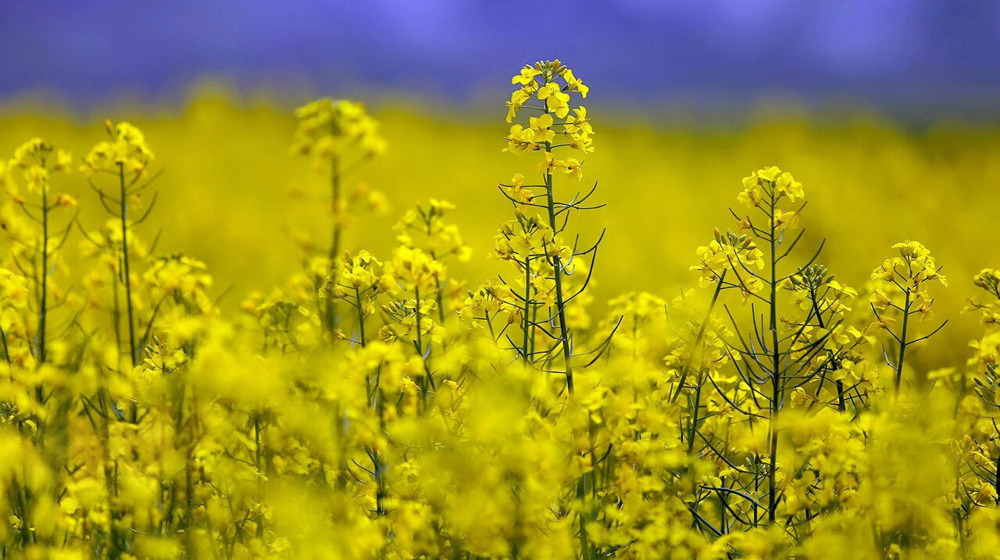




 This makes it easy to access the Press TV website
This makes it easy to access the Press TV website